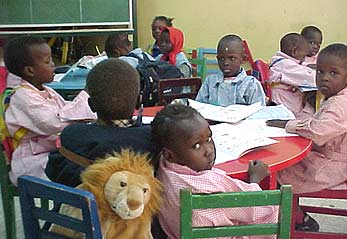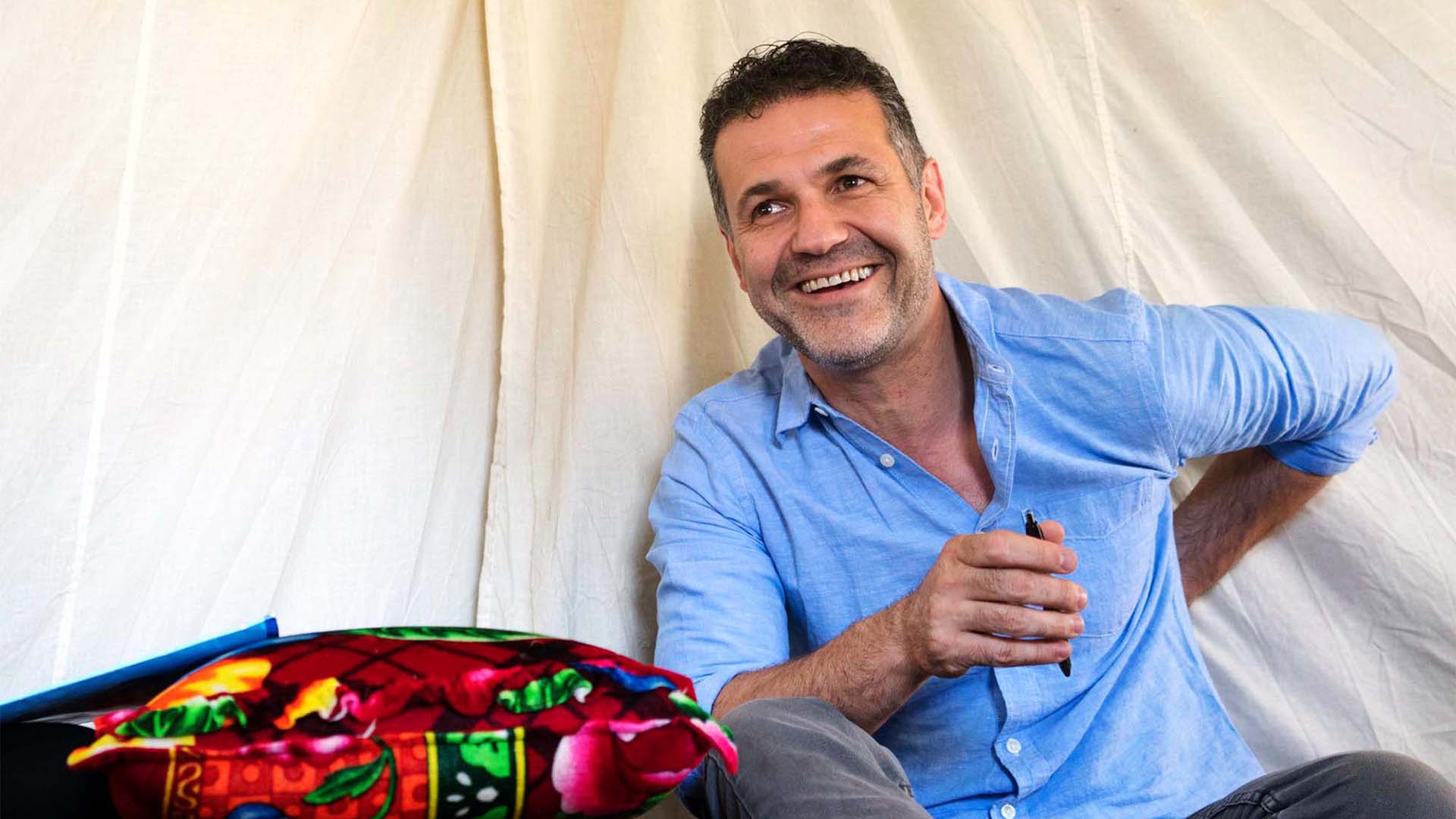Feature: Hard times for Cairo's refugees
Feature: Hard times for Cairo's refugees

CAIRO, Egypt (UNHCR) - "Setti was dying before my eyes. Her son did not look his age. He reminded me of the people we see on television when there is a famine," recalls F.M., a volunteer with the UN refugee agency in Cairo.
In theory Cairo is not a famine-stricken city, and asylum seekers like Setti and her baby should not waste away in obscurity. But in reality its refugee population, virtually out of sight against the backdrop of Cairo's massive population, suffers from the ever-rising cost of living while UNHCR itself lacks the funds to provide them with adequate support.
For some of the exiles, the lack of assistance means the difference between life and death. In 2001, Setti Ibrahim Ahmed, 42, left her native Eritrea with four children in tow to seek asylum in Egypt. Like hundreds of asylum seekers who approach the UNHCR office in Cairo every day, she was screened to determine if she was a refugee. Denied refugee status after her first interview, she was awaiting her appeal when she became ill and died in hospital. Two days later, her two-year-old son also died before UNHCR staff could get him to a hospital.
Setti's three remaining children are now alone. The UN refugee agency is helping them and trying to find solutions on their behalf.
In the last five years, the number of asylum seekers approaching UNHCR in Egypt has increased dramatically. For a time, some had to wait for more than a year for their first interview. This changed in 2002, when the agency hired more than 20 additional staff to speed up the screening operation, but the increase in recognised refugees has also brought new financial demands on the office.
To qualify for UNHCR help, urban refugees who request aid are assessed to determine their needs. Assistance could range from monthly cash allowances to medical aid, education programmes and cash grants to families with school-age children.
Six years ago, UNHCR assisted more than 4,400 refugees in Cairo with a $2.9 million budget, doling out an average of more than $660 to each person over the year. These days, with more than 9,000 refugees assessed to be in need of aid, UNHCR Cairo has only $1.5 million for its urban assistance programme, or about $171 for each refugee.
"It was hard before, but now it's impossible to survive on 70 Egyptian pounds (about $15) a month. Soon I'm going to be like my former neighbour - the landlord threw him and his family out," said John Mbeke, a Sudanese refugee receiving UNHCR assistance since 1998.
While the cost of living in Cairo has increased substantially in the last few years, the subsistence allowance allocated to vulnerable refugees has dropped by an average of 72 percent - from $55 in 1998 to $15.5 in 2002 per person each month - leaving many refugee families well below Egypt's poverty line.
In the words of Marta Bole, a Sudanese refugee woman: "We now receive less than 100 Egyptian pounds a month. I could not find an apartment with an address. The only place I found is a tiny room in the shantytown with 20 people, where there is no running water and most definitely no electricity."
Eking out a livelihood in a teeming city is vastly different from life in a refugee camp, where services are freely provided by relief agencies. In the Egyptian capital, families are evicted from their homes because they cannot afford rent; children are denied an education because they cannot afford school fees, and the general health situation of the refugees is deteriorating due to their often poor nutrition and lack of adequate living conditions.
"When you are running away from persecution, you don't really think much about what you are running to," said Mary Alwel, an Eritrean refugee who has been receiving support from UNHCR for the last three years. "All I was worried about was the safety of my one surviving child. But now, I'm scared to death of what you have to do in order to survive these terrible times we are going through."
The cost of living is likely to keep rising in Cairo, making life increasingly difficult for its refugees and raising the prospect that in this city of more than 16 million inhabitants, refugees could again face the attitudes that contributed to their flight into exile in the first place.
In a situation where budgetary constraints brought on by inadequate donor support increasingly overshadow the very real humanitarian needs of refugees, UNHCR staff in Cairo say the declining budget is creating a precarious situation for the rising number of refugees coming under the agency's care.
Setti's story is just one among many that UNHCR has come to know about. How many more refugees are suffering the pangs of hunger remains to be seen.








